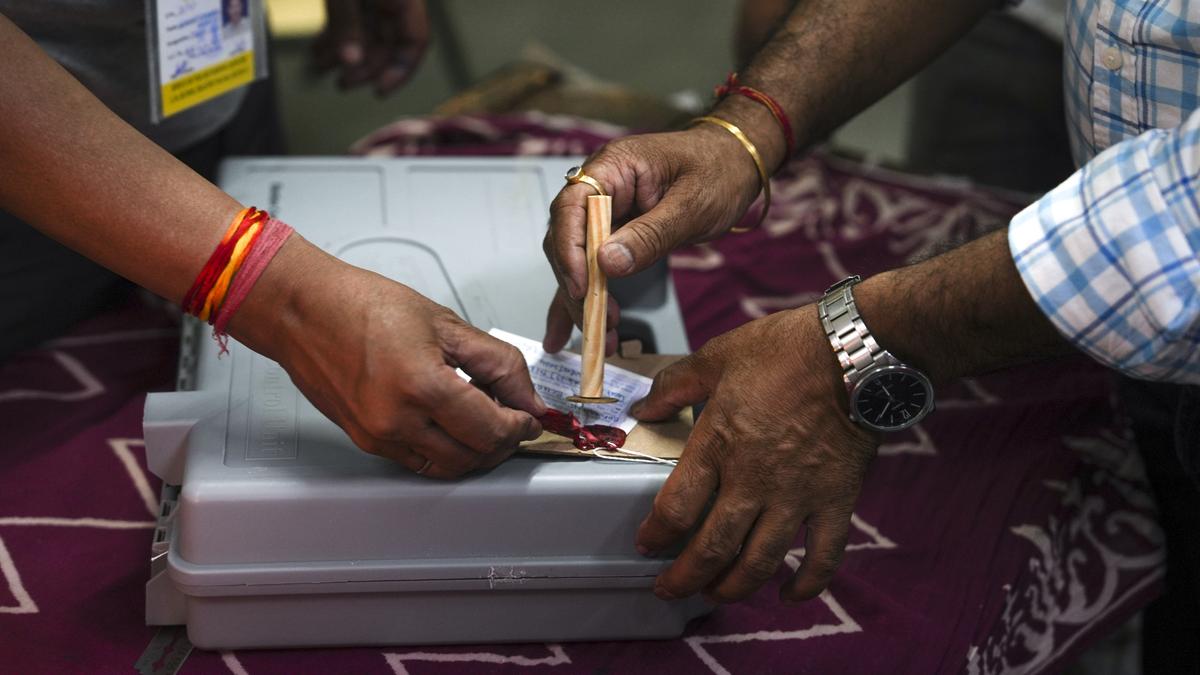
Fouling the public conversation around EVMs
The Hindu
2024 general election candidates cast doubt on EVM integrity, ECI processes, leading to Supreme Court hearings and controversy.
Many members of political parties contesting the 2024 general elections have been casting doubt on the integrity of electronic voting machines (EVMs) and the processes the Election Commission of India (ECI) has been following to operate and safeguard them.
Last month, hearings for a petition the Association of Democratic Reforms filed in the Supreme Court voiced specious arguments the Bench admitted, deliberated on, and made observations about without themselves critiquing the legitimacy of the claims — but also reposed important faith in the voter-verified paper audit trail (VVPAT) system.
Later, Congress Party leader Jairam Ramesh accused Union Home Minister Amit Shah of attempting to influence the polls’ outcome with the involvement of 150 District Magistrates; since these office-bearers are involved in the counting of votes, Mr. Ramesh’s remarks drew the ECI’s ire. Earlier this week, an Indian National Congress party candidate in Rajnandgaon alleged a mismatch in EVM numbers in the constituency; the ECI has vehemently denied it. These are just a few examples of aspersions being cast on the ECI and its EVMs.
Just before the general elections began, election commissioner Arun Goel resigned and Opposition Parties asked whether it was over the election’s protracted schedule. Officials of the ECI, including the new Chief Election Commissioner, have adopted aggressive posturing in press interactions. The ECI has also on occasion failed to act as severely against Bharatiya Janata Party poll candidates who have fallen afoul of the rules of proper electoral conduct as the rules permit.
As such, the whole public conversation around the legitimacy of EVMs is becoming fouled by unsubstantiated doubts and taints by association.
The Supreme Court hearings reminded observers of the ECI’s reluctance, with the Bench’s uncritical concurrence, to share EVMs for independent testing on the grounds that their design and schema should remain confidential. This line of inquiry shut out the idea that it is possible to probe the machines’ integrity without accessing their internal configuration, and bound public trust in the EVMs to trust in the ECI itself, which is undesirable.
Election candidates publicly voicing their suspicions without either thorough verification or thoroughly reasoned justification has had an analogous effect: their cries of ‘wolf’ are allowing the ECI, the courts, and the Centre to further ignore their complaints; creating room for the first two to continue denying requests for independent verification; and ultimately shutting out the prospect of informed deliberations on the public verifiability of EVMs.











